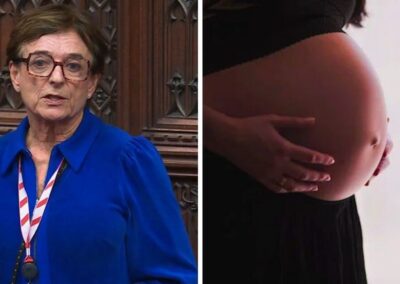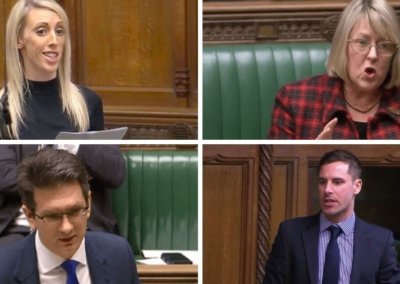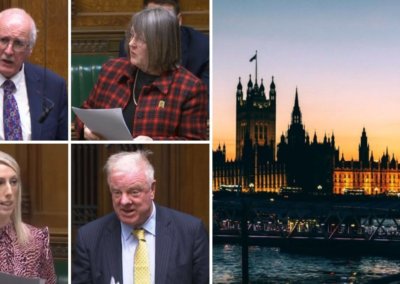The UK Government has revived plans to introduce a new bill aimed at tackling domestic abuse after the previous bill, which radical MPs planned to hijack with an extreme abortion proposal, was scuppered by the general election.
The Domestic Abuse Bill, first introduced with cross-party support by Theresa May’s government in July, would make it easier for the courts to prosecute in cases of domestic abuse.
It would do this by creating a statutory definition that means harm caused is not just physical or sexual, but can also involve emotional, and economic abuse, and controlling behaviour.
However, it is very likely that pro-abortion MPs will attempt to hijack this Bill again with a radical amendment to introduce extreme abortion legislation to England & Wales.
Speaking at the Second Reading of the Bill’s previous incarnation, Labour MP Diana Johnson championed an amendment to the Northern Ireland (Executive Formation) Bill, that has seen Europe’s most extreme abortion legislation imposed upon the province. She also confirmed her intention to hijack the Domestic Abuse Bill with a radical amendment to introduce extreme abortion legislation to England & Wales.
All other MPs who spoke on the topic of abortion during the Second Reading were united in their criticism of Johnson and her plans to hijack the Domestic Abuse Bill, which would remove protections for unborn babies with a disability and allow sex-selective abortion.
Pro-life MP Fiona Bruce said the issue of extensive abortion reform “should not be undertaken by using Back-Bench amendments to an unrelated Bill.”
She added: “To learn our lesson on this, we need only look to the unforeseen circumstances now about to play out, sadly, in Northern Ireland later this month, with a five-month lacuna in the law on abortion there about to start because this place rushed through, with completely inadequate scrutiny, amendments to the Northern Ireland (Executive Formation etc) Bill.”
Huw Merriman MP said, “it is essential that the Bill remains roughly in a shape that allows it to succeed”.
“Although I agree strongly with my hon. Friend the Member for Congleton (Fiona Bruce) about abortion reform, which I very much favour, I do not believe this is the right Bill to deliver that reform”, he added.
An analysis by pro-life charity Right To Life UK revealed that the number of pro-life MPs has increased while the pro-abortion lobby has lost a large number of MPs following last week’s General Election, but abortion threats such as these are still on the horizon.
In a post-election article, the charity announced it will be working hard to oppose the proposed new abortion framework in Northern Ireland, which is due to be introduced on 31 March, and will also be working to block any attempts to introduced an extreme abortion law to Great Britain.
Additionally, they said they will work closely with MPs to campaign for positive changes designed to increase protection for babies in the womb and end pregnancy discrimination for women.
Spokesperson for Right To Life UK Catherine Robinson said:
“It is highly inappropriate for pro-abortion MPs to hijack the Domestic Abuse Bill in a way that not only undermines its support for victims of domestic abuse and their families but also removes current legal safeguards for unborn babies, potentially allowing abortion for any reason up.
“Ahead of the election, tens of thousands of our supporters urged MP candidates to sign the Both Lives Pledge, which outlined three policy changes designed to increase protection for babies in the womb and end pregnancy discrimination for women. Ahead of polling day over 200 candidates had signed the pledge.
“Additionally, ComRes polling from 2017 showed the majority of people want the time limit for abortion to be reduced to below 20 weeks, not increased. We hope MPs will take note that the majority of people do not want this and swiftly reject proposals that remove protections for unborn babies.”












